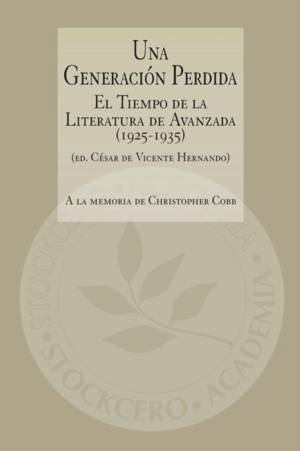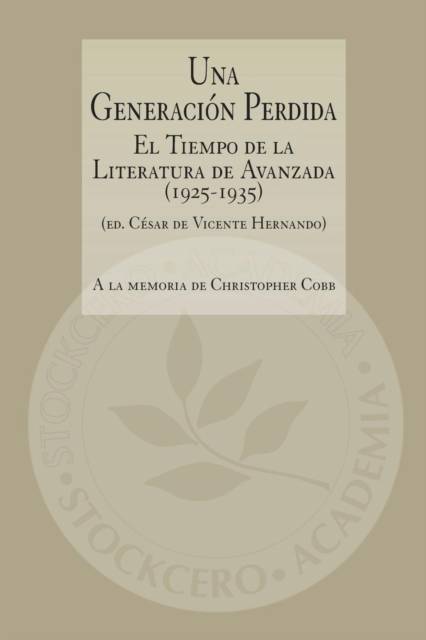
Bedankt voor het vertrouwen het afgelopen jaar! Om jou te bedanken bieden we GRATIS verzending (in België) aan op alles gedurende de hele maand januari.
- Afhalen na 1 uur in een winkel met voorraad
- In januari gratis thuislevering in België
- Ruim aanbod met 7 miljoen producten
Bedankt voor het vertrouwen het afgelopen jaar! Om jou te bedanken bieden we GRATIS verzending (in België) aan op alles gedurende de hele maand januari.
- Afhalen na 1 uur in een winkel met voorraad
- In januari gratis thuislevering in België
- Ruim aanbod met 7 miljoen producten
Zoeken
€ 55,95
+ 111 punten
Omschrijving
The Spanish literature canon has been traditionally organized following a criteria circumscribed by ideology, thus leaving out many valuable strains of literary creation: social novels, proletarian plays, critical humanist poetry, the aesthetics projects of the new romanticism. The group of politically active intellectuals that flourished in Spain during the Parliamentarism, Restoration and the Primo de Rivera dictatorship periods has not been properly included in literary studies, despite it fostered a radical movement that attempted to unify proletarian and political avant-garde revolutionary social and aesthetic discourses, set in motion several of the more culturally influential newspapers, magazines and book publishers, and outlined advanced aesthetics unifying avant-garde and realism. This veritable lost generation is studied in this book from different perspectives, in an attempt to sketch the complex situation of literature, theater and art within the political, economic and social environment of the Spanish twenties and thirties. The works included in this book carefully analyze the Spain of Primo de Rivera dictatorship, the leftist organizations and their book and newspaper production as a means of criticism, as well as a detailed study of their impact on fashion's advanced speech, art, the avant-garde, the philosophy of the crisis, the class limits of political commitment and revolutionary theater. An overview of a generation that ends with the reprint of Berta a play by Fermin Galan.
Specificaties
Betrokkenen
- Auteur(s):
- Uitgeverij:
Inhoud
- Aantal bladzijden:
- 300
- Taal:
- Spaans
Eigenschappen
- Productcode (EAN):
- 9781934768686
- Verschijningsdatum:
- 30/08/2013
- Uitvoering:
- Paperback
- Formaat:
- Trade paperback (VS)
- Afmetingen:
- 152 mm x 229 mm
- Gewicht:
- 439 g

Alleen bij Standaard Boekhandel
+ 111 punten op je klantenkaart van Standaard Boekhandel
Beoordelingen
We publiceren alleen reviews die voldoen aan de voorwaarden voor reviews. Bekijk onze voorwaarden voor reviews.









